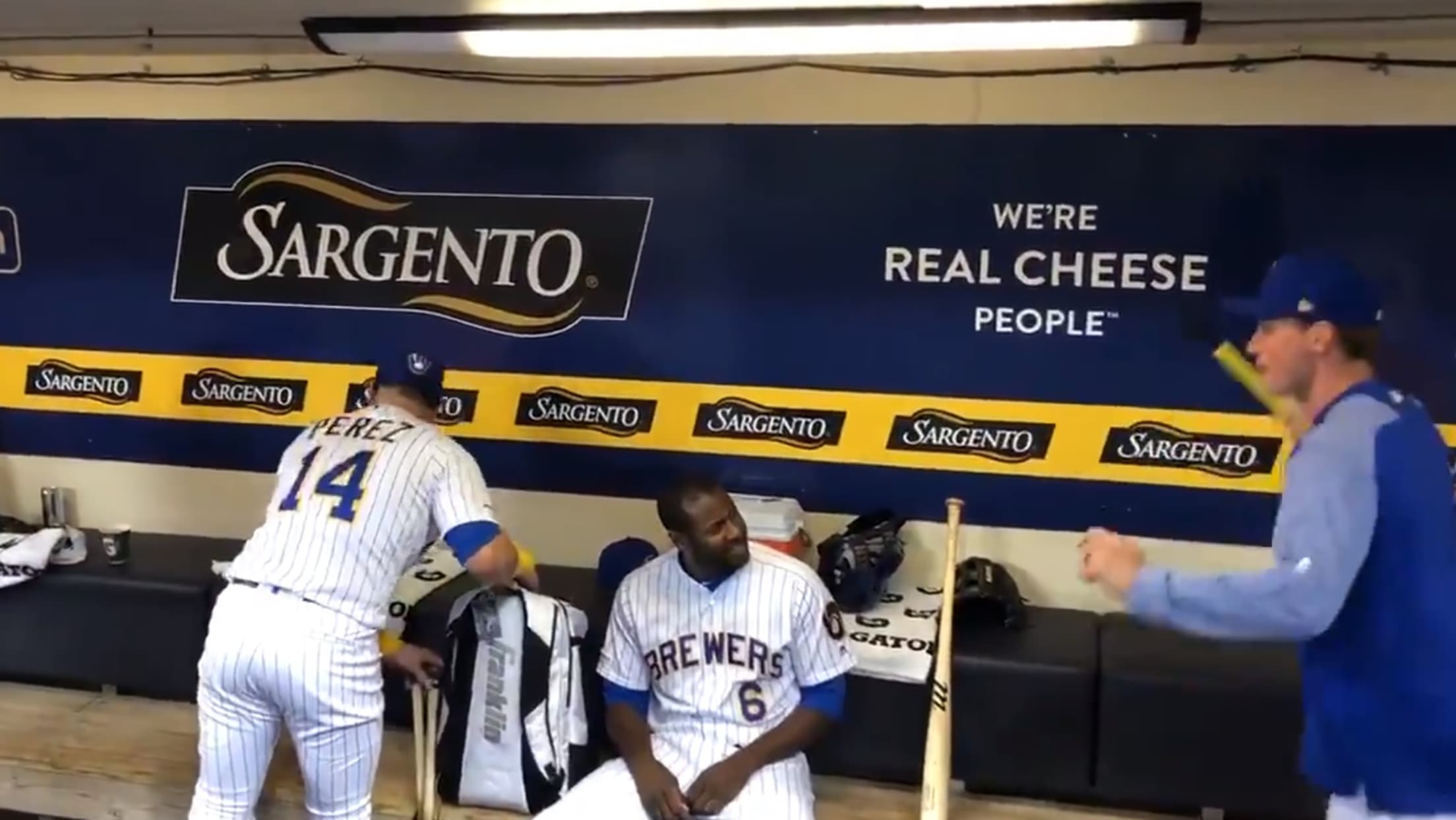Here's how walk-up songs went from organ tunes to a cultural sensation almost overnight
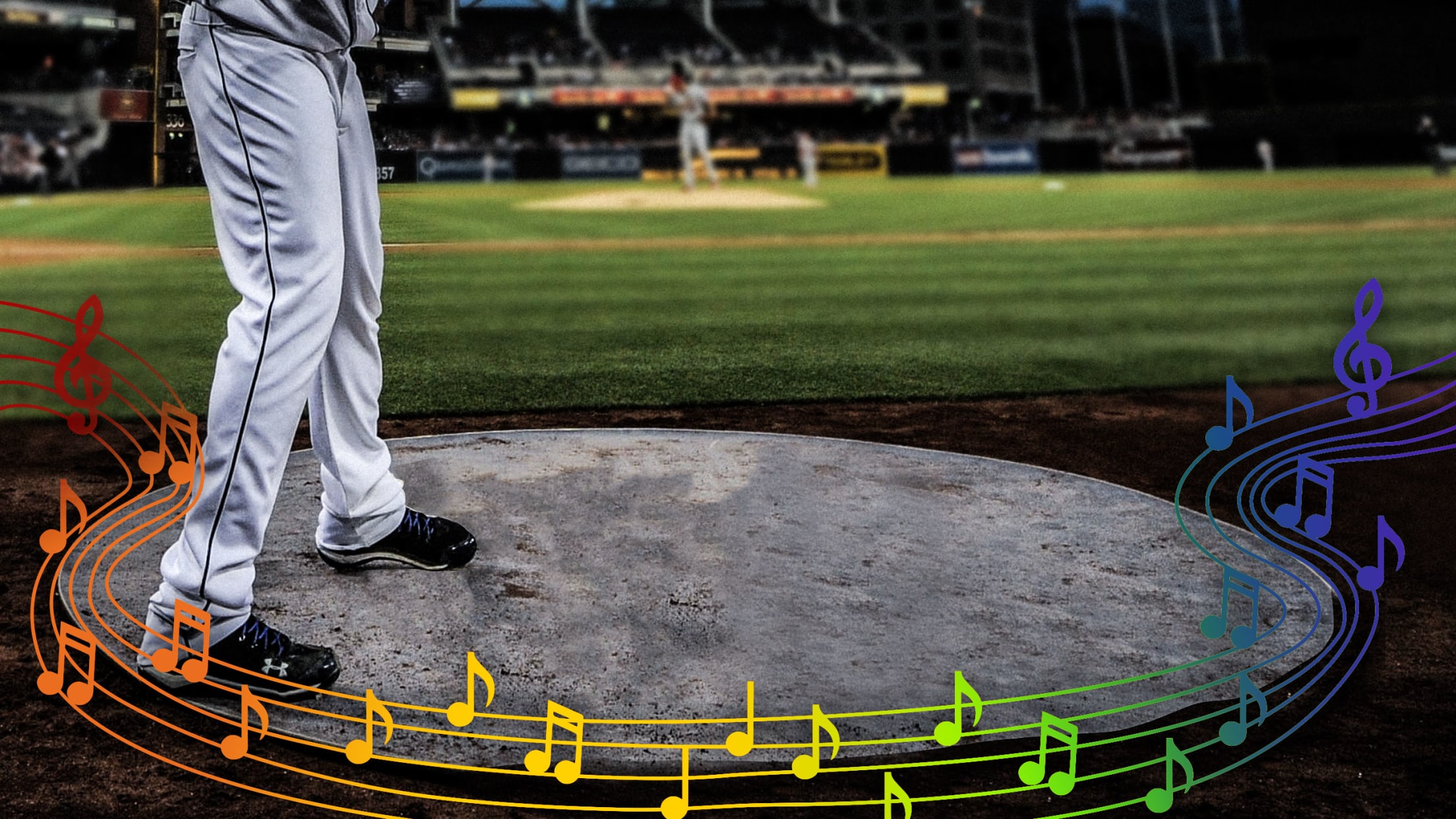
Ask any fan under 30, and they’ll probably be able to tell you who their favorite player is, what number he wears and what song plays as he walks to the plate. But that wasn’t always the case, because for most of baseball history, walk-up songs didn’t exist at all.
While walk-up music is a recent innovation, music and baseball have gone hand-in-hand since the start of the professional game. Read any history of the Red Sox and Pirates squaring off in the first World Series in 1903 and you can’t avoid reading about Boston’s Royal Rooters belting songs like “Tessie” from the stands.
Boston's Royal Rooters
— The Skimmers (@TheSkimmers) April 10, 2017
1903 World Series pic.twitter.com/unLmRoJsbS
Some teams hired pep bands, and in 1941, the first organ made its appearance at Wrigley Field.
But that was it for about 30 years. Organists played a mix of the national anthem, “Take Me Out to the Ball Game,” the classic “Charge!” and a collection of organ standards to entertain fans between innings.
It remained that way ... until Nancy Faust joined the White Sox in 1970.
Not much of a baseball fan at the time, Faust got the job after playing a function attended by plenty of sports management folks in Chicago. After sending a letter to the White Sox expressing an interest in playing the organ for the team, the team hired her.
“Lo and behold, there was an opening, and I got a nice letter from Stu Holcomb, who was the general manager at the time, saying ‘We’ve already heard you and we’d like to have you work for us,’” Faust told MLB.com in a phone call.
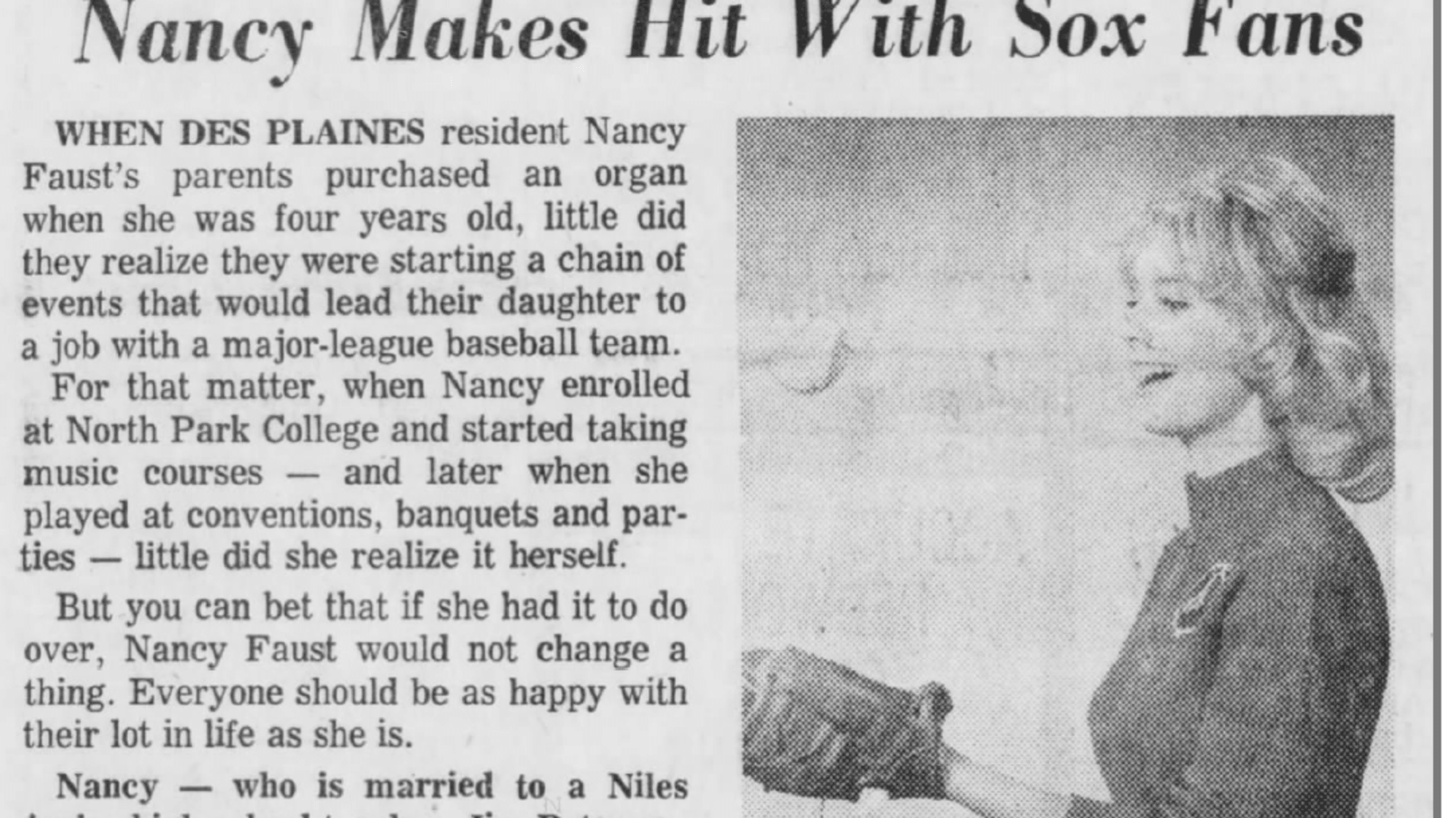
(via Newspapers.com)
But it wasn’t just her talent that turned Faust into a piece of baseball history. She happened to join the team just as ballpark attendance was growing and a new broadcaster was revolutionizing the airwaves.
“I bought a radio, so I could hear the broadcast and capture some of the slang -- 'pop up,' 'go to the showers' and things like that. It would also help me think of songs.” That radio also let her listen to the play-by-play man and perform based off of his call. His name was Harry Caray.
“I was most encouraged to keep doing what I was doing in my second year when I listened to Harry’s broadcast on the radio,” Faust said. “He would say ‘Listen to that organist! Oh, she’s playing Carry Me Back to Old Virginia!’” which she would fire up after Caray complained about a particularly long game by telling the fans they would have to carry him out of the park.
“When he said that I would follow up with ‘I’m just wild about Harry.’ I’d play and he’d respond.”
And finally, in her third year, Faust's organ was moved from center field to behind home plate.
“Because the organ was located -- thanks to Bill Veeck -- among the fans, I received a lot of positive feedback, along with a lot of great ideas for songs,” Faust remembered.
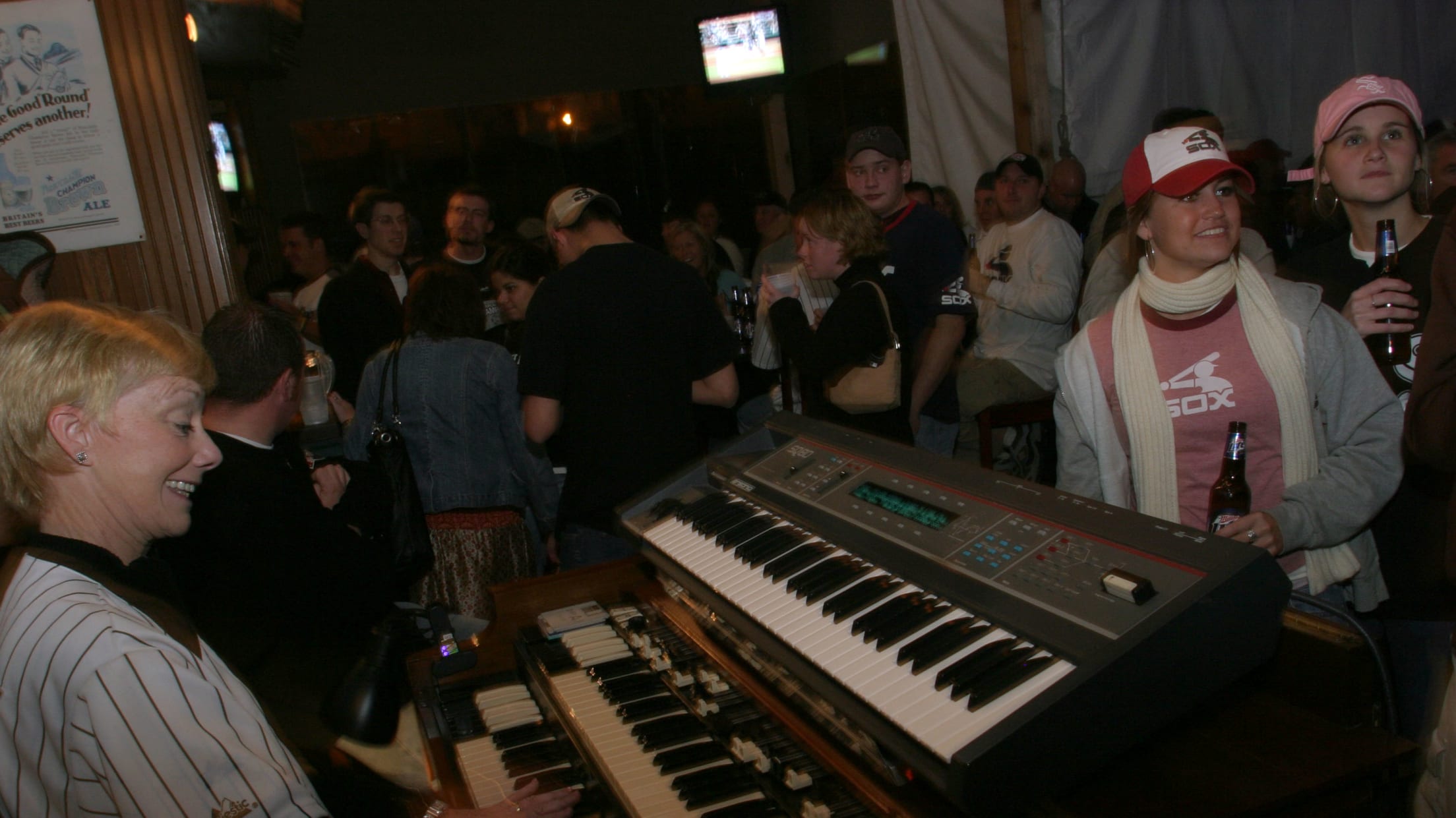
She soon realized she could play specific songs that related to each player.
After Caray referred to Frank Howard as “Too big to be a man, not big enough to be a horse,” Faust played “I Feel the Earth Move Under My Feet.” She once played “Jesus Christ Superstar” for Dick Allen and, after he homered when the song was played, the song stuck. Harold Baines, known for his quiet, almost shy demeanor, earned “He’s So Shy.”
You’ll notice Faust’s impact around the league, with organists like the Braves’ Matthew Kaminski, or the Red Sox’s Josh Kantor following in Faust’s footsteps. But what she was doing at the time was inventing the proto walk-up song.
“Now you call it walk-up music,” Faust said. “I just played intro music for whoever was coming up to bat.”
Thanks to advances in technology, teams began using their PA systems to blare anthems. At first, the Mariners were using the PA system to play organ music they recorded in the offseason. But they knew they could do so much more with the new technology.
Kingdome in 1982 and 1987? The bare concrete walls to the left and right of the scoreboard really added to the claustrophobic feel. The upper deck was extended on both sides of the scoreboard in either 1991 or early 1992. #mariners pic.twitter.com/SwfebjNW8c
— Phantom Dreamer (@ChrisRichardsPD) October 24, 2018
“I think we started to fool around with recorded music for players in 1990,” Mariners senior vice president of marketing and communications Kevin Martinez said. “We were doing these instrumentals -- almost like an organist, if you will. We weren’t playing lyrical songs. We had Jeff Leonard in 1990 -- “The Hit Man,” obviously with the Giants in the World Series. But he came to the plate, and we would just play the sting or theme from Dragnet. DUM DA NA NUM,” Martinez sang, laughing.
They did the same with Alvin Davis and Paul Simon’s “You Can Call Me Al.”
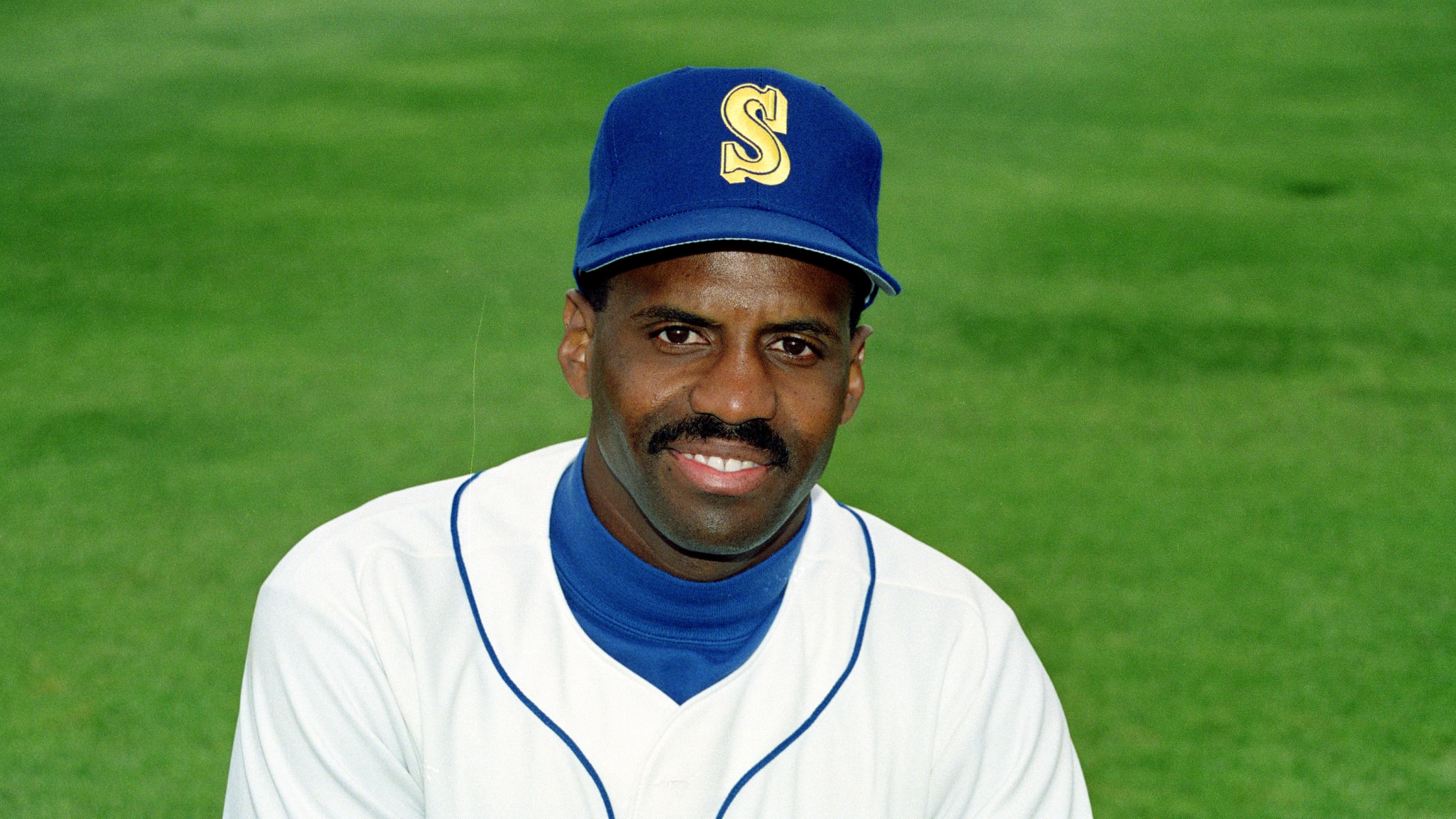
But this was covered territory already. The Mariners wanted to push it forward.
“We were kind of in that mode of thinking -- how do you take the organ and do it with recorded music? Then, probably in ‘92 -- they all start to blur together -- we started hitting Jay Buhner with “Bad to the Bone." But again, that was just the guitar riff. And then we had the lyrics, 'b-b-b-b-bad.'”
There was also “Hip Hip Hooray” for Ken Griffey Jr, where all the fans would throw their hands in the air. “That was the evolution of how we started,” Martinez said. “By ‘93, everyone had a song that they were coming to the plate with.”
While this married popular, recorded music with a theme for every player, the players still had no say. Nor were they looking for one.
Soon, other teams were following Seattle's lead. Mets hitting coach Chili Davis remembered that he started getting music played for his at-bats in the “late ‘80s, early ‘90s,” he said. “I remember being in Anaheim. I didn’t request it. I remember a guy playing [George Clinton’s] ‘Atomic Dog.’”
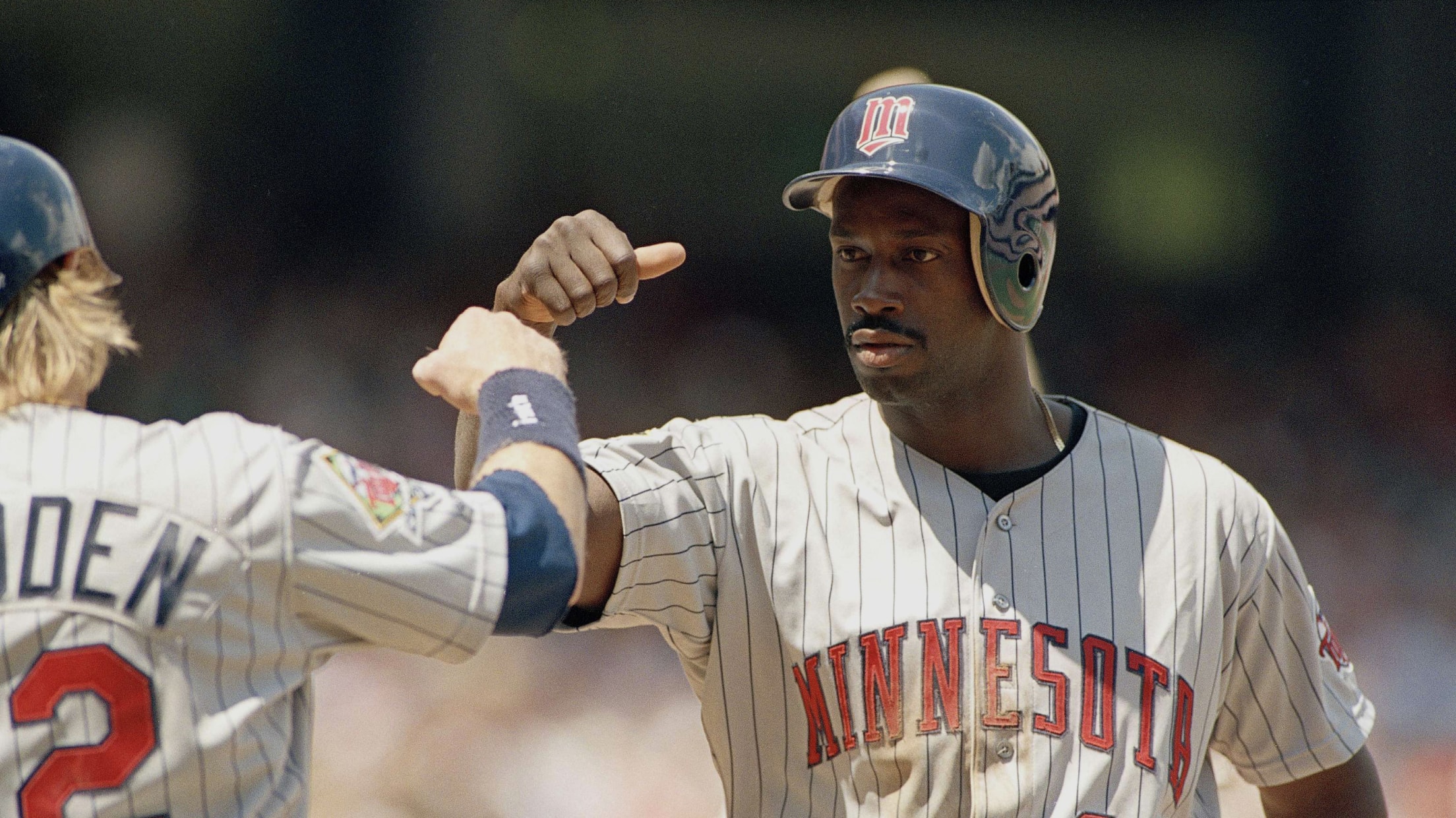
“We would pick the music for the players,” Martinez recalled. “We didn’t hang out with the players and say ‘Hey, what would you want to hear?’ We were just accenting their walk-up to the plate. It’s funny. It stayed like that probably through ‘96, ‘97.” That jibes with Davis’ memory, who says he didn’t request a song until later. That song: “Who Let the Dogs Out.”
“When they played it and I came out, people were partying. ‘You can’t strike out now, Chili,’” he would tell himself. “‘You can’t strike out.’ It put a lot of pressure on me. I didn’t like that part.”
It took a few years for everyone to jump in, but it soon became a natural extension of a players’ game. After all, if stadium PAs were choosing music that didn’t jibe with a player’s favorite, why wouldn’t they want to request something different?
“They used to play ‘Stroke Me’ by Billy Squier,” current Mets coach Gary DiSarcina said of his early years with the Angels. “I never asked for it back then. They would just pick out a song and play it. At the time, my wife was like ‘Why do they play that Billy Squier song?’ and I was like ‘I don’t know.’”
After DiSarcina hit one of the first home runs of his career in 1992, he and a few teammates went to see Rush and got to meet the band. “I loved the song ‘Limelight,’” he said. “Long story short, I ended up asking them for ‘Limelight.’”
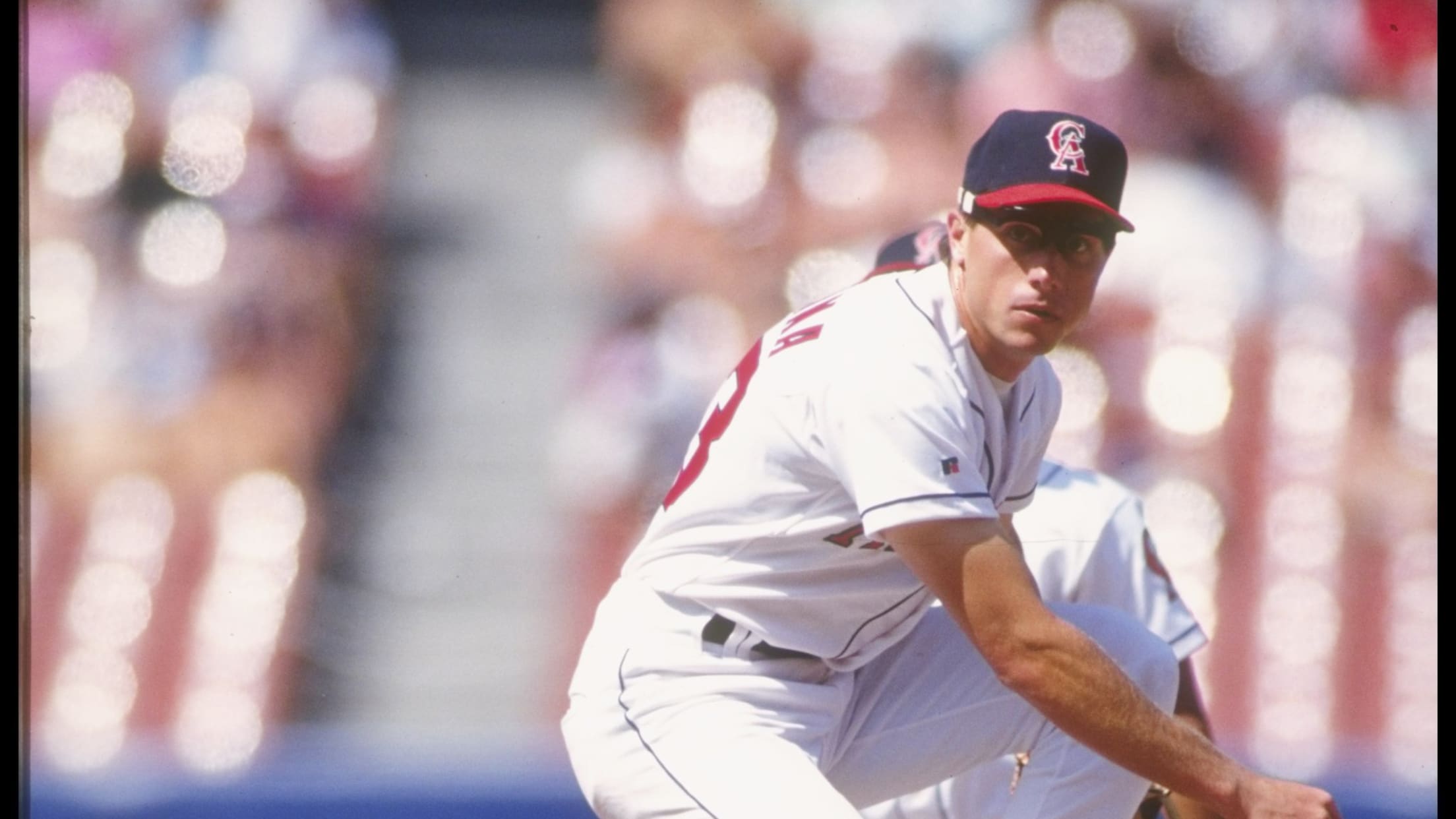
That would make him one of the very first players to request his own music, though we’ll likely never know who was the very first. Instead, the idea seemed to slowly spread across the league. Two years after DiSarcina’s request, Lenny Dykstra had his own incredibly complex request on the other side of the country, and it seemed like a brand new thing.
John Brazer -- now the Phillies’ director of publicity -- was a new employee who took over the stadium music duties from the Phillie Phanatic’s “good friend” Tom Burgoyne.
“Back then, no player ever asked for their own music,” he explained. “The only time you would hear it was batting practice. If I had batting practice music going on, you might get a request from a random player or -- it was usually an anonymous person that somehow knew the number -- and they would say ‘Can you put on this?’” But it was always batting practice. Never the game."
Then came the fateful day in spring of 1994. Before one Sunday afternoon game, Dykstra summoned Brazer down to the field.
“In my head, I thought, ‘Lenny Dykstra? I don’t even know the guy. What does Lenny Dykstra want?’ So my immediate thought was I’m in trouble,” Brazer explained. “Maybe I said something on the radio that Dykstra wasn’t happy with. That’s the only thing I could come up with.”
So, while Dykstra is on the field shagging fly balls, he told Brazer, “‘Dude, we gotta change things up.’”
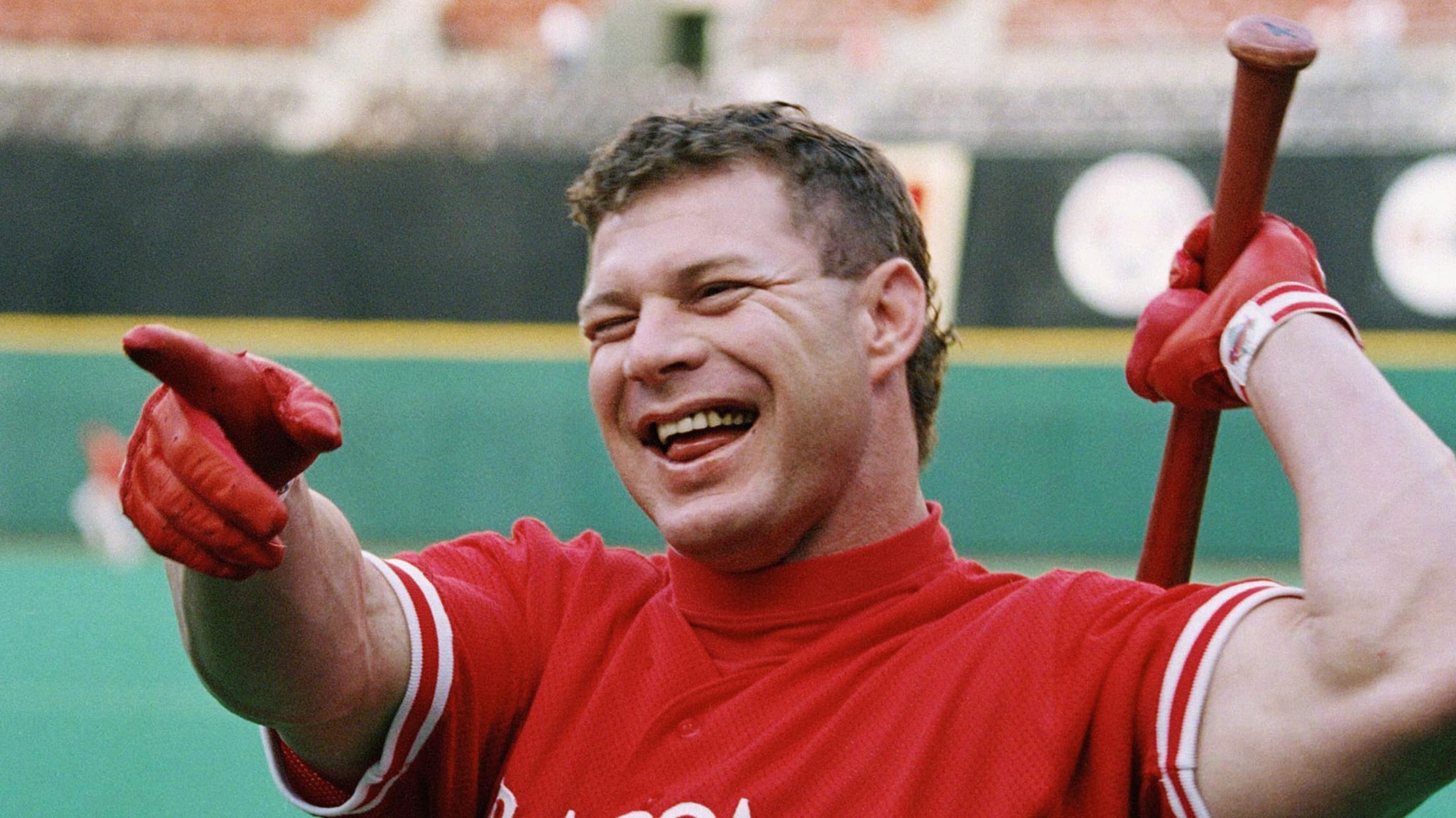
Dykstra continued. “Dude, when I’m in the batter’s box, I want you to play Hootie and the Blowfish’s ‘Hold My Hand.’”
“In my head, I’m like, ‘Oh good, I’m not in trouble for the radio,’” Brazer said. “But now I’m thinking this is kind of odd. And there are balls flying all over me. It’s batting practice.”
So, while Brazer was watching out for his safety, Dykstra explained that he wanted the song played from the beginning, with the music stopped when he gets in the box.
Dykstra then said that he wanted Tom Petty’s “I Won’t Back Down” for his second at-bat. “I want the same thing,” Dykstra said. “And when I get to the batter’s box, pull it down.”
“So, now I said, ‘How about the third time?” Brazer recalled. “He thinks about it for what feels like an eternity and he said, ‘You played that song ‘Philadelphia Freedom.’ Play that one.”
“I’m in bizarro world right now,” Brazer said of his thoughts at the time. And when he asked Dykstra what he wanted for the fourth time, the slugger paused and thought. “If I get a hit on any of those three, play that one again.”
As Brazer goes to leave, Dykstra stops him. “Don’t tell anybody. This is between us.”
Brazer returned to the booth. “And every time I played a song for Lenny, the [camerman and stadium employees] asked me, ‘Why are you playing this for Lenny?’”
By the second game, with Dykstra struggling, Brazer couldn’t stand the scrutiny any longer. “I couldn’t take the grief anymore, so I went back to regular music.”
Even with Dykstra's specificity, the trend didn't immediately take off, though clearly the wheels were in motion. It took four more years for Trevor Hoffman to first enter to "Hell's Bells," which is the first iconic closer anthem. But he wasn't the first closer to ask for a song.
“We had Wayne Gomes, who was closing at one point,” Brazer recalled. He asked me to play something [when he came out to pitch]. He gave me a cassette tape.”
Fortunately, Brazer listened to it before playing it as it was filled with curse words. So, when Gomes asked Brazer why it wasn’t played, Brazer told him, “Dude, did you hear what was on there? I can’t play that. There’s kids out there.”
At that point, the genie had escaped the bottle. PA music was in and ballplayer’s were beginning to request music.
Somehow, seemingly completely organically, it took over Major League Baseball within a year. It reached a point where a rookie Derek Jeter requested “This is How we Do It,” by Montell Jordan before his first at-bat in June of 1995.
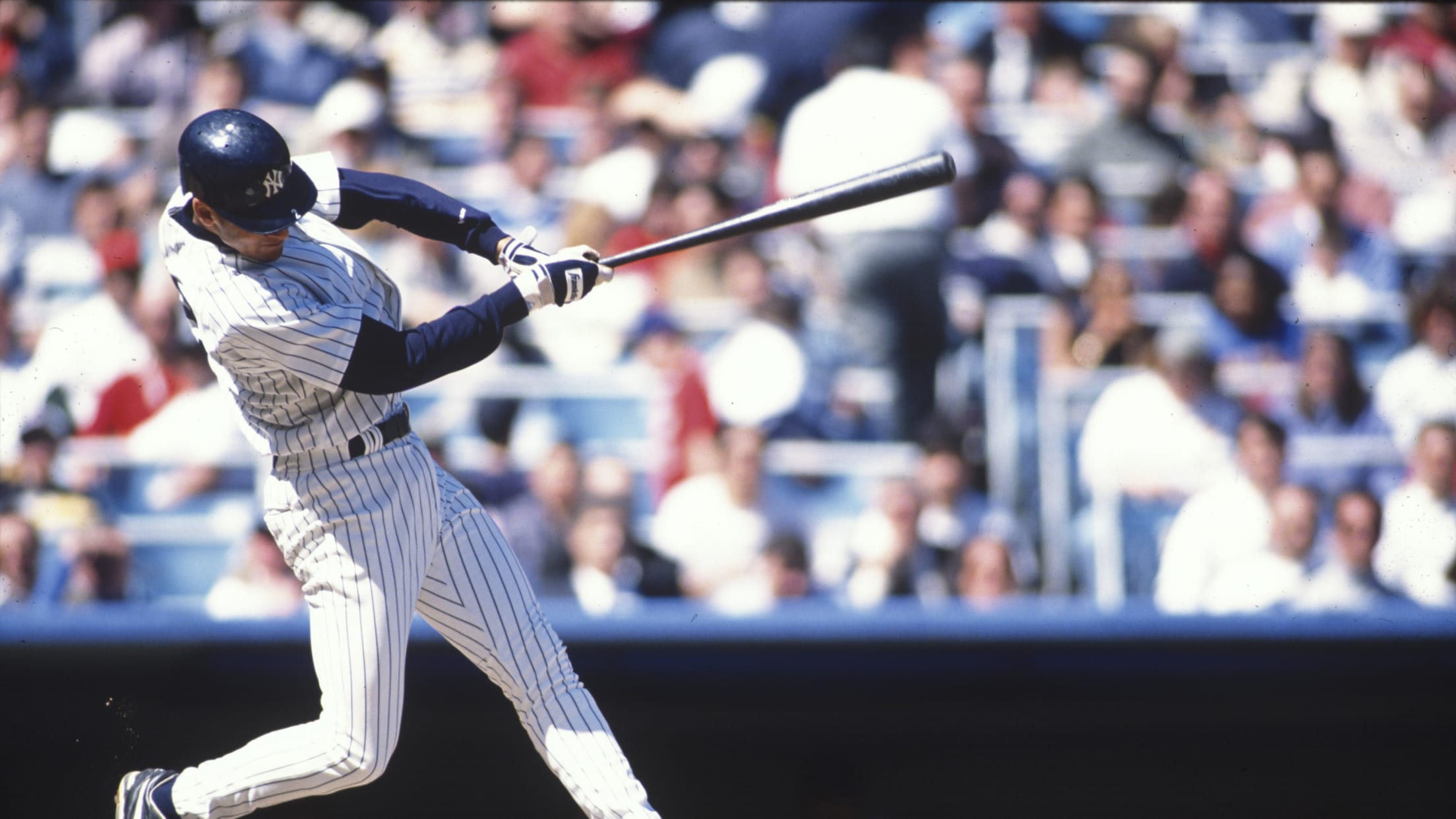
That's a pretty big leap, from few ballplayers requesting one and rarely even thinking about it to a rookie asking for one in his first big league AB. It was the original viral movement, coming from some combination of word of mouth and technological innovation. After all, if the stadium is going to be playing a CD, why shouldn’t it be one from your own collection, players probably thought.
There is one other possible explanation for why the explosion happened so quickly: The 1989 film “Major League”. As the young ballplayers grew up watching Ricky Vaughn emerge to “Wild Thing,” they surely thought of their own theme song.
“I don’t remember it being that crystallizing moment,” Martinez said, “but certainly that scene with Charlie Sheen coming out of the bullpen and that music being played -- for sure. It certainly elevated it, if not invented it."
Of course, while the entire league quickly embraced it, one team waited until 2015: The Cubs. After a brief experiment in 2010, the Cubs fully got on board when they installed a new scoreboard.
“Tom (Ricketts) and Crane (Kenney) ask players for feedback at the end of every season, and this was at the top of their list,” Cubs marketing director Alison Miller said at the time.
Over 40 years after Nancy Faust got her job with the White Sox, walk-up music is now a foundational part of the game. It’s something players spend time planning on and thinking about. People search for these songs, and sites catalog them and rank them. Fans learn about the players as they hear them. Without Faust, the Mariners, or the players who first asked for their own music, it may have never happened.
